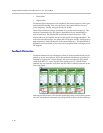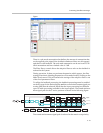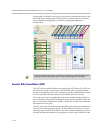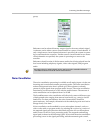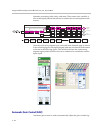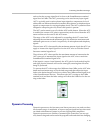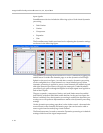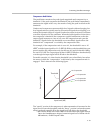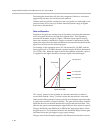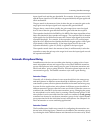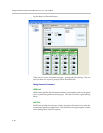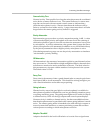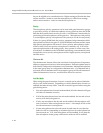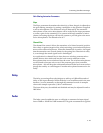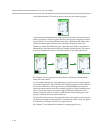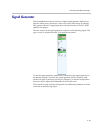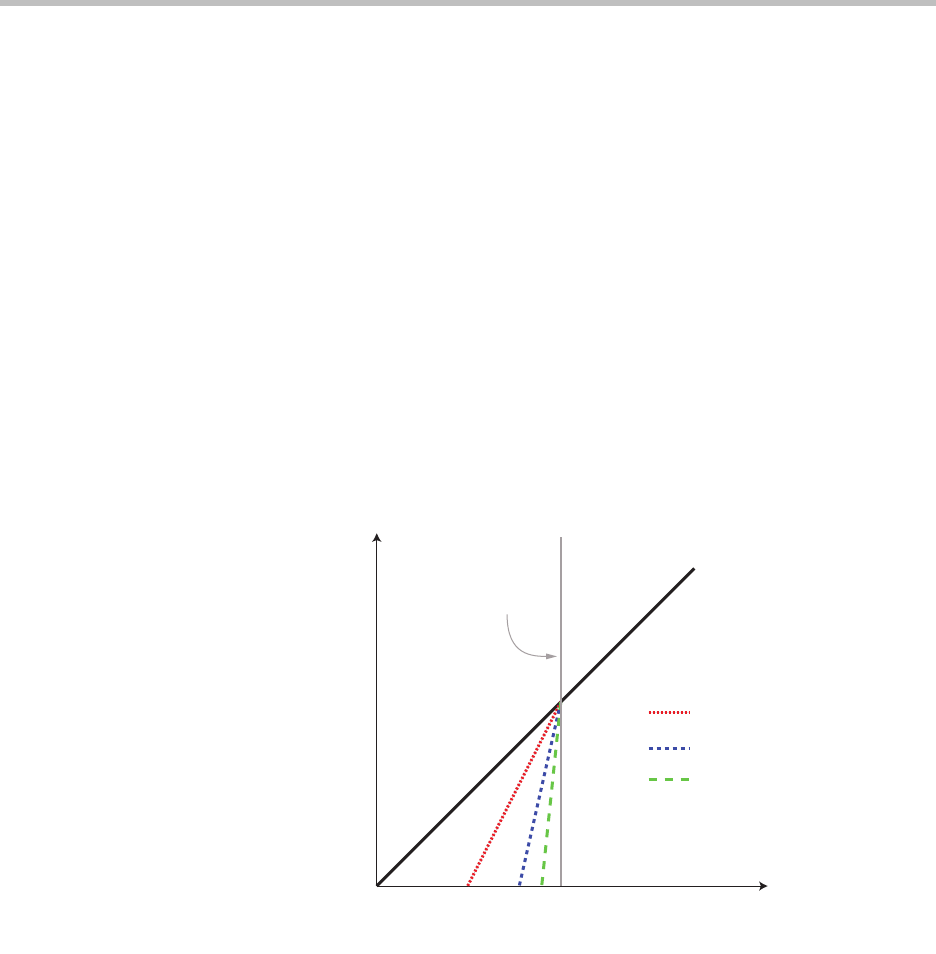
Design Guide for the Polycom SoundStructure C16, C12, C8, and SR12
5 - 38
Decreasing the attack time will allow the compressor/limiter to work more
aggressively but may also introduce audio artifacts.
Limiters perform just like compressors, but are typically set with higher com-
pression ratios (10:1 or more) to further limit the dynamic range of signals
levels above the threshold.
Gates and Expanders
Expanders and gates are another form of dynamics processing that attenuate
low level signals and leave the high level signals alone. This expands or
increases the dynamic range of a signal. When the input signal level falls
below the expander’s threshold, it applies an amount of attenuation (in dB)
equal to the expansion ratio times the difference between the threshold and the
signal level as shown in the following figure.
For example, if the expansion ratio is 4:1, the threshold is -30 dBFS, and the
input signal level is -35 dBFS, then the expander applies 20 dB of attenuation
(4 x (35-30) = 20). When the signal is above the expander threshold, a gain of
1 is applied to the signal, therefore, the input signal is left unchanged.
The “attack” portion of the expander is when the attenuation is reduced
toward 0 dB, and the “decay” portion is when the attenuation is increased.
Gates perform like expanders, but are typically set with higher expansion (that
is, gate) ratios and have a longer hold time. The gate does not decay until the
signal has been lower than the threshold for longer than the hold time. This
prevents the gate from attenuating the signal between short pauses in speech.
The gate threshold is the RMS level in dBFS of the input signal below which
the gain turns on. The level must be below this threshold longer than the gate
hold time before the gain begins to apply a gain change.
The gate ratio is the multiplier applied to the difference between the current
Input Level (dB)
Output Level (dB)
No Expansion
2:1 Expansion
4:1 Expansion
10:1 Expansion
Threshold



